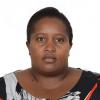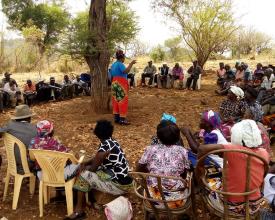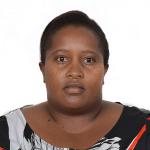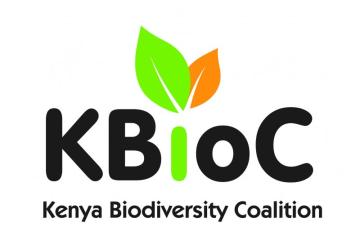
Proyecto Soberanía de Semillas
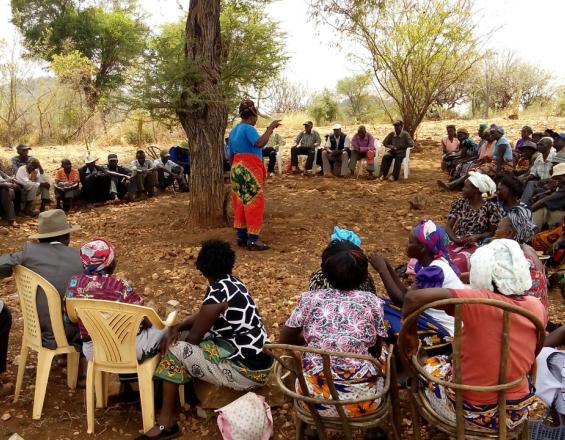
El proyecto Soberanía de Semillas apoya a las comunidades para que recuperen sus variedades de semillas perdidas como forma de diversificar la producción de alimentos y reducir la dependencia de unos pocos cultivos de cereales como el maíz. Con el creciente cambio climático, los agricultores dependientes del maíz se enfrentaban a malas cosechas, mientras que tradicionalmente diversificaban para hacer frente a los cambios meteorológicos.
BIBA Kenia ha estado trabajando con el Programa de Desarrollo de Iniciativas Rurales (RIDEP), una organización de base comunitaria situada en el condado de Tharaka Nithi, en Kenia. Apoyamos al Grupo de Mujeres Kanania para revivir, criar, multiplicar y compartir variedades de semillas tradicionales perdidas.
El proyecto ha incorporado un aspecto de banca de mesa para ayudar a las agricultoras a ahorrar sus ingresos agrícolas y concederse préstamos entre ellas para mejorar sus medios de subsistencia.
A través de festivales tradicionales y culturales, hemos conseguido popularizar alimentos tradicionales que contribuyen a la seguridad alimentaria y a mejorar la dieta de la comunidad. Esto ha permitido mejorar la nutrición y el bienestar económico.
Contexto
Défis à relever
Tradicionalmente, la labor de reproducción, conservación y multiplicación de semillas se consideraba trabajo de mujeres mayores. Nos costó incorporar a mujeres jóvenes, pero el aspecto de banca de mesa las convenció, ya que podían acceder fácilmente a préstamos asequibles para negocios y actividades agrícolas.
Al principio, la comunidad prefería cultivar maíz frente a otros cultivos como el mijo y el sorgo, que se consideraban alimentos menores no beneficiosos. Llevó algún tiempo cambiar de actitud para que la comunidad apreciara los beneficios de la diversificación de cultivos para mejorar la nutrición y la resistencia al clima.
A través de los festivales gastronómicos y culturales, las normas y valores tradicionales y culturales se han transmitido a las generaciones más jóvenes, contribuyendo así a un mayor bienestar de la sociedad.
El acceso a préstamos asequibles y la diversificación de las actividades económicas han aumentado los ingresos, lo que ha dado lugar a una mayor matriculación en escuelas e instituciones de enseñanza superior.
Ubicación
Procesar
Resumen del proceso
El proyecto de soberanía de semillas se concibió para ayudar a los agricultores a recuperar las semillas tradicionales perdidas que son resistentes al cambio climático. Esto implicó muchas reuniones sobre el diálogo comunitario. Para cohesionar y mantener cohesionado al grupo, introdujimos un aspecto de banco de mesa que despegó. La comunidad también estaba contenta.
Bloques de construcción
El renacimiento de las semillas locales y tradicionales
El Proyecto Soberanía de Semillas ha podido trabajar con agricultoras para recuperar variedades de semillas beneficiosas y tradicionales que se habían perdido, como sorgo, mijo, legumbres y otros cultivos de grano.
Factores facilitadores
La comunidad se enfrentaba a la inseguridad alimentaria debido principalmente a los problemas relacionados con el cambio climático y a la excesiva dependencia del maíz. Se animó a los agricultores a centrarse en cultivos resistentes al clima, como el mijo, el sorgo y los gramos verdes.
La voluntad de la comunidad de implicarse en la planificación participativa y adoptar las estrategias propuestas para reactivar las variedades de cultivos locales y autóctonos.
Lección aprendida
La diversificación de las variedades de cereales y leguminosas aumentó la seguridad alimentaria y mejoró su estado nutricional.
Las ferias de semillas y alimentos tradicionales reavivaron y realzaron los valores y prácticas culturales con los jóvenes, contribuyendo así al aprendizaje intergeneracional.
La colaboración con otras entidades, como los Museos Nacionales de Kenia, fue importante para garantizar la continuidad del Festival Cultural y Alimentario anual de Meru hasta la fecha.
Banca de mesa y grupo diferenciado
El aspecto de banca de mesa del proyecto respondía a las necesidades de la comunidad de acceder a préstamos asequibles para actividades empresariales y agrícolas.
Ayudamos al grupo a formarse en gestión financiera y rendición de cuentas.
La banca de mesa ha atraído a los más jóvenes, interesados en la agricultura como negocio. Esto ha contribuido a mejorar la seguridad alimentaria de los medios de subsistencia.
Factores facilitadores
El aumento de la producción ha permitido la aparición de pequeñas empresas, con una banca de mesa que permite el acceso a préstamos asequibles.
Los agricultores también han podido llevar a sus hijos a la escuela, aumentando así los conocimientos y las capacidades de la comunidad.
Lección aprendida
El acceso a préstamos baratos y asequibles para emprender actividades empresariales y agrícolas es fundamental para mejorar los medios de vida de la comunidad.
Es vital incluir el desarrollo de capacidades de liderazgo y responsabilidad financiera para mejorar la gobernanza de los recursos.
También se impartió formación para aumentar el periodo de reembolso de un mes a al menos 6-12 meses. Esto es lo que se conoce como grupo con una diferencia, en el que los préstamos no se convierten en una carga para los miembros de la comunidad, que disponen de tiempo suficiente para devolverlos y obtener rendimientos de las inversiones.
Impactos
El Proyecto Soberanía de Semillas trabaja con agricultoras para recuperar variedades de semillas beneficiosas/tradicionales que se habían perdido, como sorgo, mijo, legumbres y otros cultivos de grano.
El proyecto también ha introducido nuevas variedades más nutritivas y con más beneficios económicos, como el sorgo gadam, que posee grandes cualidades para la fabricación de cerveza, con un alto contenido en carbohidratos (75%) en comparación con la cebada (66%) y el maíz (67%). También es rico en azúcares fermentables, con bajos niveles de aceite y proteínas. East African Breweries Limited es uno de los principales mercados del sorgo gadam en Kenia.
Con la reactivación y diversificación de las variedades de cereales y leguminosas, la comunidad aumentó su seguridad alimentaria y mejoró su estado nutricional.
Las mujeres también empezaron a utilizar la banca de mesa para ahorrar sus ingresos agrícolas y pudieron acceder a préstamos baratos y asequibles para emprender negocios y actividades con sus ahorros sin depender de los caros préstamos bancarios. Como resultado, su bienestar económico y sus habilidades de liderazgo mejoraron con una mayor transparencia y responsabilidad financiera.
Se reactivaron las ferias de semillas y alimentos tradicionales y se potenciaron los valores y prácticas culturales con la participación de los jóvenes como parte del aprendizaje intergeneracional. Los Museos Nacionales de Kenia se sumaron al proyecto y, hasta la fecha, apoyan el Festival Cultural y Alimentario de Meru.
Beneficiarios
East Africa Breweries Limited se ha beneficiado de materias primas más baratas para la fabricación de cerveza (sorgo gadam). El gobierno de Kenia ha podido aumentar los ingresos fiscales.
Objetivos de Desarrollo Sostenible
Historia
Jane Mutiiria preside el grupo de mujeres Kanania, del condado de Tharaka Nithi. Cuando el grupo se reunió para trabajar con el Programa de Desarrollo de Iniciativas Rurales (RIDEP) y la Asociación de Biodiversidad y Bioseguridad de Kenia (BIBA-K), las mujeres se enfrentaban a muchos problemas en sus familias. A menudo sus cosechas de maíz fracasaban debido a la escasez de lluvias y se veían obligadas a comprar alimentos caros. Sin mucho de sus granjas, los ingresos eran mínimos y sus hijos a menudo eran enviados fuera de la escuela debido a las tasas escolares.
RIDEP y BIBA-K formaron a las mujeres en el cultivo de semillas y en la producción de cultivos resistentes al clima, como el mijo, el sorgo y los gramos verdes, que soportan las duras condiciones climáticas de Tharaka Nithi.
Además, el grupo de mujeres Kanania ha puesto en marcha un banco de mesa donde las mujeres se reúnen semanalmente y ahorran dinero que luego piden prestado al grupo para poner en marcha negocios. Muchas mujeres han empezado a criar pollos que pueden vender fácilmente en caso de necesidades urgentes que requieran dinero.
El festival cultural anual de Meru ha hecho que las mujeres más jóvenes y los niños aspiren a aprender danzas y canciones folclóricas que presentan cada año en un acto cultural local.
Todas las mujeres esperan con impaciencia nuestras reuniones semanales para ahorrar, charlar y discutir ideas de desarrollo. Trabajan en sinergia. Creemos en no dejar a nadie atrás.
Jane ha podido visitar muchos lugares en Kenia y fuera del país y está inspirando a sus miembros.
